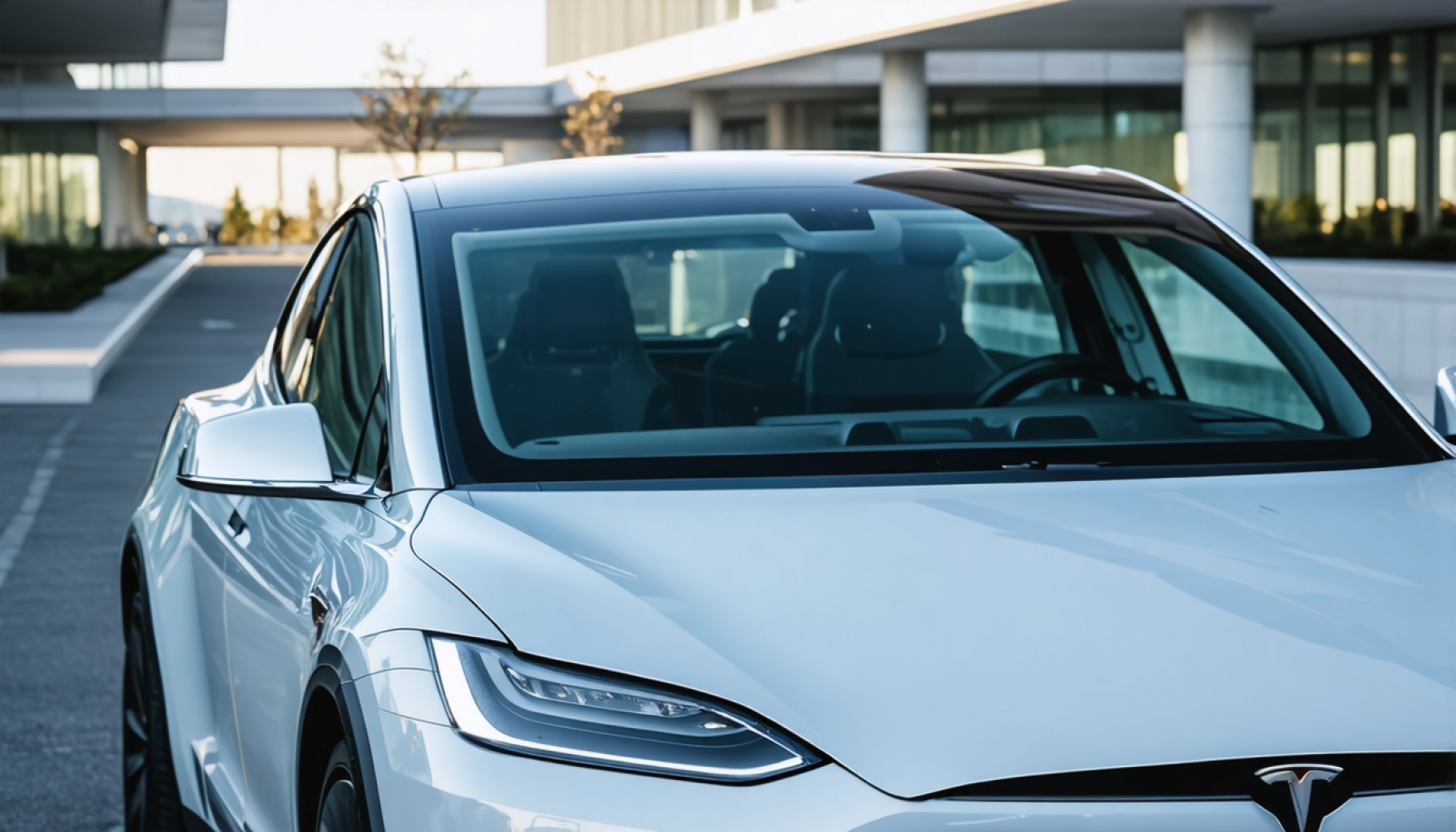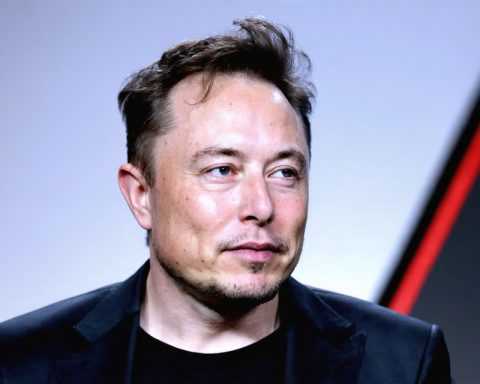- European electric vehicle (EV) market experiences rapid growth, with sales increasing by 25%, benefiting brands like Volkswagen, Renault, and Kia.
- Chinese-manufactured EVs in Europe face a decline, with registrations dropping to 6.9% in February, the lowest in two years, due to increased EU customs duties.
- Tesla encounters significant setbacks in Europe, including a 76% drop in deliveries in Germany, driven by CEO Elon Musk’s controversial political endorsement.
- Tesla sales decreased by approximately 50% in key markets like France, Norway, Denmark, and Sweden.
- The EV market demands adaptability and cultural understanding from manufacturers to navigate consumer preferences and geopolitical challenges.
Europe’s fast-evolving electric vehicle market has taken an unexpected turn, painting a vibrant yet tumultuous picture for key industry players. This February, sales of Chinese-manufactured electric vehicles in Europe fell to their lowest in two years. Just 6.9% of electric vehicles registered were of Chinese origin, a drop from 7.8% in January, marking the harshest dip since early 2023.
This decline casts a curious shadow over an otherwise booming sector. The European electric vehicle market has surged by a quarter, rewarding traditional automotive stalwarts such as Volkswagen, Renault, and Kia. These brands harnessed the momentum by launching fresh, innovative models, capturing a burgeoning audience eager to switch to electric.
Yet, amidst this growth, Chinese manufacturers grapple with the consequences of increased customs duties introduced last year by the European Union. These tariffs have made it challenging for Chinese brands to maintain their foothold in a fiercely competitive market already brimming with seasoned contenders.
In a parallel narrative, the once dominant Tesla finds itself in turbulent waters across Europe. Particularly stark is the situation in Germany, where February saw a dramatic 76% drop in deliveries from the previous year. Once the crown jewel of the Tesla empire, Germany has become a battleground of dwindling market share, with sales nosediving by 70% year-to-date.
Delving into the causes reveals a complex tapestry of consumer sentiment and political miscalculation. Tesla’s charismatic yet polarizing CEO, Elon Musk, has drawn ire with his controversial endorsement of Germany’s far-right political party, Alternative for Germany (AfD). His public declarations urging support for the party have sparked outrage, potentially alienating a significant portion of Tesla’s customer base in the process.
Across Europe, Tesla’s fortunes falter, seeing a steep decline of roughly 50% in some of its key markets, including France, Norway, Denmark, and Sweden. Once invincible, Tesla now faces a test of resilience as it attempts to navigate a landscape where brand loyalty and political sensitivity coalesce more sharply than ever.
The key takeaway from this unfolding saga is that the electric vehicle market, while expansive and promising, demands adaptability and cultural acuity from its participants. For Chinese manufacturers and Tesla alike, understanding and respecting the cultural and political nuances of their markets might prove crucial in regaining lost ground. As Europe paves its way toward an electric future, industry giants must remain vigilant to the shifting tides of consumer preference and geopolitical sentiment.
European Electric Vehicle Market Shake-Up: What You Need to Know
Current Landscape and Challenges
The European electric vehicle (EV) market, although thriving, presents specific challenges for key players like Chinese manufacturers and Tesla. Recent statistics show a decline in Chinese-manufactured EV sales in Europe, with February figures dropping to 6.9% from 7.8% in January. One primary contributor to this decline is the increased customs duties enforced by the European Union, which have created a formidable barrier for Chinese brands aiming to sustain their market presence.
Tesla, another powerhouse in the EV sector, faces its own set of hurdles, notably in Germany. Deliveries plummeted by 76% in February compared to the previous year. The downturn can partly be attributed to CEO Elon Musk’s controversial political opinions, which have alienated some European consumers, as well as increased competition from European brands, which have gained traction with innovative models.
Industry Trends and Market Insights
1. Emergence of European Brands: Companies like Volkswagen, Renault, and Kia are capitalizing on the shifting interest towards more sustainable transport options. These brands are achieving remarkable success by launching new electric models that appeal to a broad consumer base seeking reliable and environmentally friendly vehicles.
2. Political and Cultural Sensitivity: The current situation illustrates the critical need for multinational companies to navigate local cultural and political landscapes adeptly. As companies globalize, understanding regional consumer perceptions and sociopolitical factors becomes integral to maintaining brand loyalty.
3. Strategic Adaptation: For Chinese manufacturers and Tesla to regain momentum, a strategic reevaluation of market entry methods and adaptability to regulatory frameworks is essential. Investing in local manufacturing plants and forming strategic partnerships within Europe could mitigate the impact of tariffs and bolster brand acceptance.
Consumer Queries and Concerns
– Why are Chinese EV sales decreasing in Europe?
European-imposed tariffs have increased the costs of Chinese EVs. Additionally, strong competition from European brands is drawing consumers away.
– What’s causing the decline in Tesla sales in Germany?
Tesla’s drop in Germany is linked to a combination of intense competition, reduced consumer sentiment owing to Elon Musk’s political endorsements, and economic pressures affecting consumer spending habits.
– How is the EV market expected to evolve in Europe?
The market is expected to continue growing robustly, with an accelerated focus on sustainability and innovation. European brands are likely to increase their share, while international players may need to recalibrate strategies to compete effectively.
Actionable Recommendations
1. For Consumers: Stay informed about government incentives for EVs in your region. Many European countries offer grants or tax reductions for electric vehicle purchases, which can significantly reduce the overall cost.
2. For Manufacturers: Invest in research and development to design models that cater to European consumers’ taste and align with EU emission standards. Additionally, consider local assembly to bypass tariff impacts.
3. For Policymakers: Continued support for the development of charging infrastructure will be critical for sustaining the growth of the electric vehicle market.
4. For Investors: Keep an eye on European automakers who are rapidly expanding their EV lineups, as they may present lucrative investment opportunities due to favorable market conditions and regulatory support.
Quick Tips for Prospective EV Owners
– Assess Range and Performance: Consider your daily driving needs and choose an EV that offers a suitable range.
– Research Charging Networks: Ensure you have easy access to charging stations, whether at home or through public infrastructure.
– Compare Models: Use reputable sources for up-to-date reviews and comparisons to ensure you make an informed decision.
For more insights and electric vehicle news, you can visit Volkswagen or Renault.














